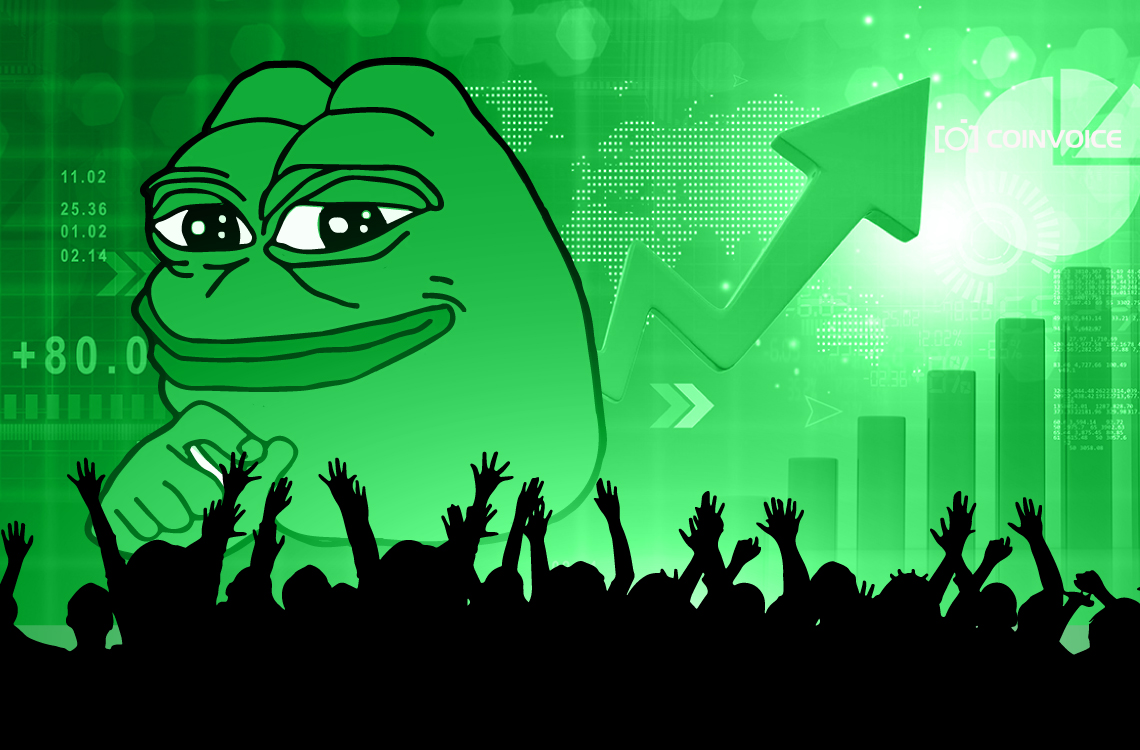Difficulties, change, rule, expose Facebook's mental journey
Joining the elements of the blockchain can Facebook make a counterattack in the payment field like WeChat?
Social giant Facebook is building a new empire for Internet payments.
On June 18th, Facebook officially launched its official website of the cryptocurrency “Libra” (Libra), and released the Libra white paper. The stable currency issued by Facebook finally surfaced.
Founder Mark Zuckerberg made a long message on his Facebook page to announce the news.
- Xiao Lei: The biggest challenge for Tencent and Ali will be digital currency.
- Launch the first Libra transfer minimalist tutorial
- Meng Yan: Zha Xiaoge, can you still be more sharp? 丨SheKnows in-depth interpretation of Libra white paper
“In the future, we want to provide more services for individual users and businesses – such as paying bills with one click, buying coffee with QR codes, or taking local public transport without carrying cash or a subway card.” Zach Berg said.
In the interpretation, Libra is considered to be similar to LIBOR (London Interbank Offered Rate), which is a sign of Facebook and Zuckerberg's ambition to enter the crypto finance and payment.
The White Paper states that Libra's mission is to support billions of people with a simple global monetary and financial infrastructure.
As early as a year ago, Facebook rushed into the blockchain, which was seen as a self-rescue action when Facebook was caught in the privacy paradox.
A year later, Facebook officially handed over the transcripts of the admission blockchain for one year. Facebook's aircraft carrier in the Internet world did not choose a technical service such as BAAS that was easier to comply with. Instead, it chose the path that most challenged the existing cross-border payment industry – issuing a stable currency based on a basket of legal currency.
Can Facebook, which started socially, be able to counterattack in the payment field like WeChat?
Official announcement "Libra"
On June 18th, a blockbuster that had been warming up for nearly half a year in the currency circle officially landed, and Facebook officially released its white paper on the blockchain cryptocurrency project “Libra”.
The reason why Libra is likened to a blockbuster is more of a craving for the social giant Facebook to bring 2.7 billion users into the market. People hope that Facebook will bring new funds into the market and trigger a bitcoin bull market.
In the white paper, Facebook raised the pain point that the poor pay a variety of complicated fees for financial services, such as remittance fees, wire transfer fees, overdraft fees, and ATM fees.
Facebook believes that there are still some people who are on the verge of the current financial system. People who “have not opened a bank account” often do not have enough funds and suffer from a variety of unpredictable and unpredictable expenses.
Libra wants to build a simple, borderless currency and financial infrastructure for billions of people through blockchain.
Specifically, Libra has three main elements: built on a secure, scalable, and reliable blockchain; an asset reserve designed to give it intrinsic value; managed by an independent Libra association responsible for developing the ecosystem.
In a more detailed interpretation, Facebook mentioned that Libra is designed to be a currency with hedging capabilities, Libra will not use gold as a support, but will adopt a range of low-volatility assets (eg, from a stable and reputable The cash provided by the central bank and government securities) are mortgaged.
This is consistent with the previous media report that Facebook will launch stable coins and anchor a basket of French currency. Investors holding Libra will be able to convert their own Libra to local currency at the exchange rate.
Calibra is both the name of the Facebook subsidiary and the name of Libra's companion cryptocurrency wallet DApp. Calibra is still under development and will be available for download in the app store in the future.
After the official announcement of the Facebook cryptocurrency Libra project, the bitcoin currency price has not been affected by large fluctuations. As of press time, the bitcoin price is $9,146.
Facebook's share price rose 4.24%, up to 188.47 per share before the release, and the market value jumped to 537.985 billion.
Facebook is in crisis, social empire is on the verge
The social empire built by Facebook suffered the biggest crisis of trust in history in 2018.
In March 2018, the New York Times and the British Observer reported that Cambridge Analytica used Facebook to “steal” 50 million user data during the US election. And the supporters behind Cambridge Analytica are standing in the Trump camp and are likely to use Facebook data to influence the US election.
The Facebook privacy breach crisis is on the verge.
Facebook and its founder Mark Zuckerberg became the target of users and the media because of allegedly leaking user data and influencing the US election.
“Deleting Facebook” became a popular tag at the time, and a large number of users boycotted Facebook by deleting their Facebook accounts.
By April 2018, Facebook's privacy door event was fermented to a new climax.
Zuckerberg attended the US Congress hearing due to user data breaches and was questioned by the US Senate.
At the hearing, the 34-year-old entrepreneur who ranked fifth in the world's richest list was faced with the round of questions of 44 members. The hearing lasted for another five hours.
The live pictures on the Internet show that Zuckerberg, who has always been happy to wear gray T-shirts for various occasions, was unable to get the image of the whole suit. In the venue, he was arranged to sit alone, the whole hearing, the expression of Xiaozha Serious and careful.

According to reports sent back by the local media, Zuckerberg apologized for the data breach at the hearing.
Facebook is in the most passive situation.
On the one hand, Facebook's stock price plummeted, Bloomberg data showed that Facebook's market value once evaporated $ 59 billion. More media have calculated that Zuckerberg’s worth in the year of 2018 has shrunk by $16 billion.
On the other hand, the crisis facing Facebook is much more than that. After the privacy incident, Facebook was caught in incidents such as false news, advertisements, and through the door.
Someone used data to record all the scandals that happened in Facebook in 2018. According to statistics, in 2018, Facebook experienced 31 major negative events, and encountered an average public relations crisis every 12 days. At this point, Facebook's reputation has plummeted.
In response to Facebook's crisis, Facebook shareholders have considered impeaching Zuckerberg and asked Zuckerberg to step down as chairman.
Facebook co-founder Chris Hughes also published a commentary in the New York Times in May this year, "It's Time to Break Up Facebook" ("It's Time to Split Facebook").
In the article, he criticized Facebook's over-centeredness, and Zuckerberg's centralization: "Facebook's board of directors is more like an advisory board than a supervisor, because Mark controls about 60% of voting rights… only Mark alone can decide how to configure Facebook's algorithm, which can determine what users can see in their news feeds, determine what privacy settings users can use, and even decide which messages can be sent."
Chris Hughes also admitted that Zuckerberg could not make Facebook better.
Bet the blockchain and seek new models
Multiple negative events, such as the privacy door incident, not only made Facebook's market value shrink, but also caused Facebook's reputation to be hit hard. As users continued to leave, Zuckerberg began to plan a self-revolution for Facebook.
For a long time, Facebook's profit model has been dominated by advertising. Revenue accounts for more than 90%. In Q18, in 2018, Facebook's mobile advertising revenue accounted for approximately 93%, reaching US$16.64 billion; in 2019, Facebook advertising revenue was US$14.91 billion, accounting for 98.9% of total revenue.
The reason why it has been able to consistently generate huge advertising revenues is closely related to the 2.7 billion users accumulated by Facebook 14 seniors.
Accumulating user personal data information on Facebook is Facebook's biggest advantage. Based on huge user data, Facebook has implemented accurate advertising for the Golden Masters, which has become the biggest selling point of Facebook platform advertising.
However, after more than a year of public blame, Facebook has come to realize that the model of “advertising sales” is difficult to sustain.
Seeking new business models and transforming the profit structure has become Facebook's new revolutionary goal.
In May 2018, Facebook conducted the largest internal restructuring in history.
It's worth noting that after this reorganization, Facebook set up a separate blockchain division led by Facebook's independent instant messaging application, Messenger executive David Marcus, and was attributed to Facebook's "New Platform and Architecture Group." ".
Marcus joined Facebook in 2014. Prior to becoming the head of the Facebook blockchain division, Marcus continued to focus on the blockchain world and joined the board of Coinbase, the world's largest bitcoin trading platform.
Three months later, Marcus resigned as Coinbase's director and focused on Facebook's blockchain strategy research.
After the establishment, Facebook's blockchain department has been active and has been recruiting new talents.
The blockchain team's recruitment announcement reveals a new version of Facebook: want to promote the use of blockchain on Facebook and increase the lives of billions of people around the world.
The industry has a variety of expectations for the blockchain division that Facebook suddenly established.
Some people speculate that Facebook wants to use the blockchain to transform the privacy of its business. Others have boldly predicted that Facebook may be fully operational on the blockchain.
In fact, as early as the beginning of 2018, when Zuckerberg released the 2018 Individual Challenge Plan, he first revealed his concern about the blockchain and cryptocurrency, and wanted to realize the ideal of empowering people with cryptocurrency. .
He said: "I am very interested in delving into the positive and negative factors of these technologies (blockchain and cryptocurrency) and how to make the most of them in our services. This year will be an important year for Facebook's self-improvement…"
Similar to many blockchain teams, the initial exploration of the Facebook blockchain team is also chaotic. A former Facebook employee once said: "At least for more than six months, everyone is very confused and doesn't know what to do."
Planning to send money, Xiaozha wants to round his own payment dream?
Just as people thought that Zuckerberg might just use Facebook's blockchain to transform Facebook's privacy pain points, he gave a different set of answers.
In December 2018, Bloomberg took the lead in breaking the news of Facebook's currency.
At the end of February this year, the New York Times re-emerged with more details, saying that users can send money directly to their contacts in their messaging system, just like PayPal's online cross-border remittance transactions. This gives Facebook a new argument for targeting the payment market.
At the same time, the New York Times quoted five people familiar with the matter as saying that Facebook is considering linking the token to a variety of foreign currencies and the US dollar to endorse the value of the token.
On March 6, 2019, Zuckerberg published a detailed account of his vision of privacy and social networking. The two references to the realization of privacy and security in the field of payment all confirmed the previous Bloomberg and The New York Times has mentioned in both reports that it provides remittance services to users by issuing new currencies.
What is the purpose of the currency? Some people have given three points of analysis, one is for online payment, the other is for cross-border transfer media for the global market; the third is for advertising business that integrates its ecology.
Facebook wants to build a payment ecosystem with blockchain. According to Bloomberg, half of Facebook's blockchain division comes from payment companies, including Google Pay and Samsung Pay. One-fifth of the employees are former Paypal employees, and Musk, who was the vice president of PayPal, also recruited a large number of members from Paypal for the Facebook blockchain team.
And Xiaozha’s ambitions for payment have been reflected in many attempts in the early days of Facebook, but most of them have not ended.
According to the Odaily Planet Daily, as early as 2011, Facebook launched Facebook Credits to simplify the transaction payment process related to virtual goods on the management platform. Facebook collects 30% of the processing fee from each transaction. Facebook Credits is also considered to be the first so-called "virtual currency" product launched by Facebook.
However, due to problems such as exchange rate fluctuations, Facebook Credits encountered great setbacks in international payments. After two years of trial, it was finally eliminated in 2013.
In addition, between 2012 and 2015, Facebook also launched Facebook Gifts and launched the “Payment Transfer” feature on Messenger. But these two features have not been universally applied.
On the other hand, Facebook has made a big splash on the “social + payment” road of international competing products.
Before the admission of WeChat, Alipay was the only and largest Internet payment provider in China. After WeChat entered the game with the "red envelope" gameplay, WeChat instantly harvested a large number of users, and Alipay two points domestic payment market.
Facebook, which started copying from WeChat, was probably agitated again.
This time, using the blockchain approach to pay, can Facebook win other competing products?
Nowadays, in the cross-border payment field, Facebook is rushing to do business with banks. As the number of competing products continues to expand, Facebook may be difficult to shake the traditional corporate dominance in this field.
In this regard, Facebook's way is to pull the traditional giants into play together.
Media The Information said that after the launch of the Libra cryptocurrency project, Facebook is recruiting third-party agencies to act as "nodes" for verifying cryptocurrency transactions, hoping to get 1 billion from 100 partner companies (also known as node operators). Investing in the US dollar, each node operator invests $10 million in it.
On June 18th, Facebook published in its white paper 26 companies that cooperated with it, and 100 members of the Libra Association were the “founders” of the association.
Distributed in payment, technology and trading platforms, telecommunications, blockchain, venture capital, non-profit organizations and multilateral organizations and academic organizations, including vistas, Visa, MasterCard, PayPal and Uber. It’s awesome.

This means that Facebook is likely to have expanded some of its new application scenarios for its own cryptocurrency.
With a strong grasp of 2.7 billion users and a number of well-known companies to help, the future of Facebook cryptocurrency is imaginative.
"The world's super-aircraft carrier mix and set sail, not only brings at least $1 billion in stable currency value anchoring assets, but the turbulent waves of all 100 nodes in their respective fields." An industry insider commented.
With the disclosure of its encryption project partners, it indicates that Xiaozha’s payment ambitions have long been more than just inside the ecology. And the addition of companies like Visa and MasterCard will probably help Facebook's cryptocurrency reach more users.
Meng Yan, vice president of developer community CSDN, analyzes Facebook's ability to effectively convert users to Libra. After several years of development, it can carry $50 to $80 trillion in transactions a year. Libra only needs to charge a two-thousandth of the fee, and the fee income is only higher than the current Facebook revenue.
Perhaps as Meng Yan commented, Facebook's entry into the blockchain is to upgrade the Libra project to a superbank that has both coinage and credit rights in the digital economy world.
After watching Libra launched by Facebook, some people commented: "The new Fed is about to be born."
references:
1. Libra White Paper
2. Meng Yan, “Facebook Digital Currency: Origin, Significance and Consequences (4D Long Text)”
3. Moni, "The Next Global Central Bank: Facebook"
4. Chris Hughes, God Translator's Bureau, "It's Time to Split Facebook"
5. Wu Xusheng, "Facebook Road to Money"
6. Moni, "Everything about the Facebook cryptocurrency project "Libra"
7. Huang Xueyan, dw, "Facebook Money, Internet and Blockchain Life and Death Started"
8. Moni, "Facebook has never been successful in the payment field. Do you have confidence in the small tie-in currency? 》
9. The doorman, "The former employee of Facebook said: The company was confused in the first 6 months of the blockchain."
10. "Zachberger set up: 4 months, Facebook fell 6 Jingdong! 》
Text | 昕楠 operations | Gai Yao edit | Lu Xiaoming
We will continue to update Blocking; if you have any questions or suggestions, please contact us!
Was this article helpful?
93 out of 132 found this helpful
Related articles
- Jameson Lopp's Thoughts on "Libra Blockchain"
- Analysis: Libra shows Facebook's ambitions in the second half of the Internet
- From competitors to partners, blockchain giants R3 and Digital Asset will work together to create a win-win model
- Babbitt column | Xiao Wei: Buying virtual currency "dirty assets" is not desirable…
- Blockchain Technology | The Evolution of Fabric Architecture
- Opinion: Facebook enters the encryption market or becomes a positive catalyst for Bitcoin
- Thunder teamed up with Hong Kong University of Science and Technology, Guangdong, Hong Kong and Macau, Dawan District, blockchain cooperation accelerated running






